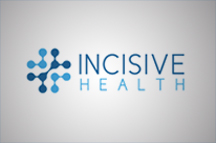-
 A winter’s tale – what has caused the relatively strong performance of A&Es this year and is it sustainable? A great blog by Richard Murray.
A winter’s tale – what has caused the relatively strong performance of A&Es this year and is it sustainable? A great blog by Richard Murray. - Twin sisters win UK Young Scientist of the Year Award for work on diagnosing cancer early.
- Who gets called at Prime Minister’s Questions? An interesting analysis.
- Where is the people power in the Oldham Review? Bob Hudson examines the disconnect between Ed Miliband’s aspiration and Labour’s emerging health policy.
- See a heart pump in action. Amazing scientific images recognised by @wellcomeimages.
- A by-product of #NHS austerity – ‘jump the NHS queue’ adverts coming to a bus near you.
- The Russian dolls that keep on giving, although @drphilhammond wants the size order reversed.
- A new campaign from Which on making complaints count in public services. And this is why it matters.
- Public attitudes to big data.
- Virtual wards offering access to integrated expertise, driven by data. The Tower Hamlets experience of general practice reform.
- Genomics England has been named one of the fifty smartest companies of 2014.
- Cancer has a devastating impact in poor countries. Is the Rwandan model of care the way to fight back?
And from America:
- What do White House policymakers want from ‘experts’? Accessibility and public profile result in greater policy cut-through.
- Mapping health disparities in America. And the correlation between poverty on life expectancy.
- Cancer capacity and funding challenges in America.
- The use of patient reported data should be at the heart of care planning according to this study.
And finally…
- Old Etonians or old Ethiopians? The Guardian subs have found a new dominant clique in Cameron’s inner circle…
Incisive Health is the new force in health policy and communications. In an NHS environment that is noisy, changing rapidly and where decision-makers are under intense pressure, policy communications need to be incisive to make an impact. We know how to cut through the noise and competing priorities to deliver results that enhance our clients' businesses and reputations and – ultimately – improve healthcare for patients.












